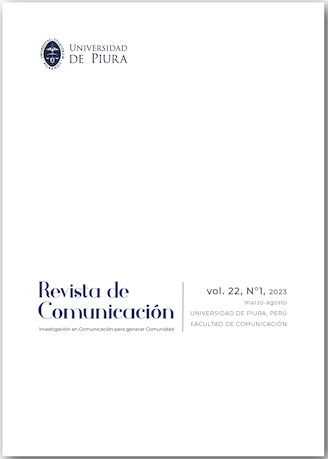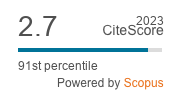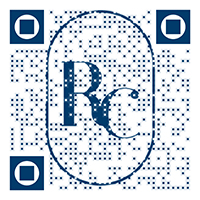Level of compliance with the IFCN Code of Principles in Spain. A qualitative analysis of four fact-checking platforms
DOI:
https://doi.org/10.26441/RC22.1-2023-2971Keywords:
fact-checking, IFCN, disinformation, accountability, journalism, Maldita.es, Newtral, Verificat, EFE Verifica, SpainAbstract
Ethics and accountability have proved to be crucial aspects in fact-checking, which can only be understood in connection with social responsibility and public service. This research aims to provide a new scope of analysis by taking the code of principles of the International Fact-checking Network as a reference to observe the level of compliance and accountability of several fact-checking platforms. The study focuses on the Spanish context, where four fact-checking initiatives are verified signatories of the aforementioned code: Maldita.es, Newtral, EFE Verifica and Verificat. To carry out the analysis, the basic principles of the IFCN code were included in a list of 37 items related to fairness, transparency and accountability. The study has two objectives. On one hand, it measures the level of compliance to international fact-checking standards and, therefore, the quality of the service offered by the platforms examined. On the other hand, it provides comparisons between the platforms while highlighting their strengths and weaknesses as well as addressing common trends among them. This qualitative approach offers new and significant evidence of how the main Spanish fact-checking platforms are achieving most of the accountability principles established by the IFCN, especially in the implementation of a standard methodology within the verification process. It also shows that there is room for improvement in terms of transparency, mostly in the area of economic and business-related data: annual balances and alliances with third parties, such as Google or Facebook; as well as the purpose of those relationships.
Metrics
References
Aguaded-Gómez, I. y Pérez-Rodríguez, M. A. (2012). Strategies for media literacy: Audiovisual skills and the citizenship in Andalusia. Journal of New Approaches in Educational Research, 1(1), 22-26. https://doi.org/10.7821/naer.1.1.22-26 DOI: https://doi.org/10.7821/naer.1.1.22-26
Almansa-Martínez, A., Fernández-Torres, M. J. y Rodríguez-Fernández, L. (2022). Desinformación en España un año después de la COVID-19. Análisis de las verificaciones de Newtral y Maldita. Revista Latina de Comunicación Social, 80, 183-200. https://www.doi.org/10.4185/RLCS-2022-1538 DOI: https://doi.org/10.4185/RLCS-2022-1538
Amazeen, M. A. (2020). Journalistic interventions: The structural factors affecting the global emergence of fact-checking. Journalism, 21(1), 95-111. https://doi.org/10.1177/1464884917730217 DOI: https://doi.org/10.1177/1464884917730217
Brandtzaeg, P. B., Følstad, A. y Chaparro-Domínguez, M.A. (2018). How journalists and social media users perceive online fact-checking and verification services. Journalism practice, 12(9), 1109-1129. https://doi.org/10.1080/17512786.2017.1363657 DOI: https://doi.org/10.1080/17512786.2017.1363657
Brennen, J. S., Simon, F. M., Howard, P. N. y Nielsen, R.K. (2020). Types, sources, and claims of Covid-19 misinformation. Reuters Institute for the Study of Journalism Factsheet, Abril 2020, 1-13. https://reutersinstitute.politics.ox.ac.uk/types-sources-and-claims-covid-19-misinformation
García Ruiz, R., Ramírez García, A. y Rodríguez-Rosell, M.M. (2014). Media literacy education for a new prosumer citizenship. Comunicar, 43(22), 15-23. https://doi.org/10.3916/C43-2014-01 DOI: https://doi.org/10.3916/C43-2014-01
Graves, L. (2016). Boundaries not drawn: Mapping the institutional roots of the global fact-checking movement. Journalism Studies, 19(5), 613–631. https://doi.org/10.1080/1461670X.2016.1196602 DOI: https://doi.org/10.1080/1461670X.2016.1196602
Graves, L. y Cherubini, F. (2016). The rise of fact checking sites in Europe. Oxford: Reuters Institute for the Study of Journalism. https://reutersinstitute.politics.ox.ac.uk/sites/default/files/research/files/The%2520Rise%2520of%2520Fact-Checking%2520Sites%2520in%2520Europe.pdf
Graves, L. (2017). Anatomy of a fact check: Objective practice and the contested epistemology of fact checking. Communication, culture & critique, 10(3), 518-537. https://doi.org/10.1111/cccr.12163 DOI: https://doi.org/10.1111/cccr.12163
Graves, L., Nyhan, B. y Reifler, J. (2016). Understanding innovations in journalistic practice: A field experiment examining motivations for fact-checking. Journal of communication, 66(1), 102-138.https://doi.org/10.1111/jcom.12198 DOI: https://doi.org/10.1111/jcom.12198
Graves, L. y Anderson, C. W. (2020). Discipline and promote: Building infrastructure and managing algorithms in a “structured journalism” project by professional fact-checking groups. New Media and Society, 22(2), 342–360. https://doi.org/10.1177/1461444819856916 DOI: https://doi.org/10.1177/1461444819856916
Hallin, D. C. y Mancini, P. (2004). Comparing media systems. Three models of media and politics. New York: Cambridge University Press. DOI: https://doi.org/10.1017/CBO9780511790867
Hartley,K. y Vu, M.K. (2020). Fighting fake news in the Covid-19 era: policy insights from an equilibrium model. Policy sciences, 53, 735-758. https://doi.org/10.1007/s11077-020-09405-z DOI: https://doi.org/10.1007/s11077-020-09405-z
International Fact-Checking Network (2022) The commitments of the code of principles.
Recuperado de https://www.ifcncodeofprinciples.poynter.org/know-more/the-commitments-of-thecode-of-principles
Kuś, M. y Barczyszyn-Madziarz, P. (2020). Fact-checking initiatives as promoters of media and information literacy: The case of Poland. Central European journal of communication, 13(2), 249-265.
https://doi.org/10.19195/1899-5101.13.2(26).6 DOI: https://doi.org/10.19195/1899-5101.13.2(26).6
López-Pan, F. y Rodríguez-Rodríguez, J.M. (2020). El fact checking en España. Plataformas, prácticas y rasgos distintivos. Estudios sobre el mensaje periodístico, 26(3), 1045-1065. https://doi.org/10.5209/esmp.65246 DOI: https://doi.org/10.5209/esmp.65246
Lowrey, W. (2017). The emergence and development of news fact-checking sites: Institutional logics and population ecology. Journalism studies, 8(3), 376-394. https://doi.org/10.1080/1461670X.2015.1052537 DOI: https://doi.org/10.1080/1461670X.2015.1052537
Mantzarlis, A. (2018). Fact-checking 101. En Ireton, C. y Posetti, J. (eds.). Journalism, fake news & disinformation: Handbook for journalism education and training (pp. 85-100. Paris, Francia: Unesco. https://unesdoc.unesco.org/ark:/48223/pf0000265552
Mena, P. (2018). Principles and Boundaries of Fact-checking: Journalists’ Perceptions. Journalism Practice, 13(6), 657-672. https://doi.org/10.1080/17512786.2018.1547655 DOI: https://doi.org/10.1080/17512786.2018.1547655
Moreno-Gil, V., Ramon-Vegas, X. y Mauri-Ríos, M. (2022). Bringing journalism back to its roots: examining fact-checking practices, methods, and challenges in the Mediterranean context. Profesional de la información, 31(2), e310215. https://doi.org/10.3145/epi.2022.mar.15 DOI: https://doi.org/10.3145/epi.2022.mar.15
Moreno-Gil, V., Ramon-Vegas, X. y Rodríguez-Martínez, R. (2021). Fact-checking interventions as counteroffensives to disinformation growth: Standards, values, and practices in Latin America and Spain. Media and communication, 9(1), 251-263. https://doi.org/10.17645/mac.v9i1.3443 DOI: https://doi.org/10.17645/mac.v9i1.3443
Nieminen, S. y Rapeli, L. (2019). Fighting misperceptions and doubting journalists’ objectivity: A review of fact-checking literature. Political studies review, 17(3), 296 309. https://doi.org/10.1177/1478929918786852 DOI: https://doi.org/10.1177/1478929918786852
Noain-Sánchez, A. (2021). Desinformación y Covid-19: Análisis cuantitativo a través de los bulos desmentidos en Latinoamérica y España. Estudios sobre el Mensaje Periodístico 27(3), 879-892. https://dx.doi.org/10.5209/esmp.72874
Nicey, J. (2020). Les pratiques de fact-checking journalistique participatif, entre contraintes et intérêts. Interfaces numériques, 9(2), e4283. https://doi.org/10.25965/interfaces-numeriques.4283 DOI: https://doi.org/10.25965/interfaces-numeriques.4283
Noain-Sánchez, A. (2021). Desinformación y Covid-19: Análisis cuantitativo a través de los bulos desmentidos en Latinoamérica y España. Estudios sobre el mensaje periodístico, 27(3), 879-892. https://doi.org/10.5209/esmp.72874 DOI: https://doi.org/10.5209/esmp.72874
Peña-Ascacíbar, G., Bermejo-Malumbres, E. y Zanni, S. (2021). Fact checking durante la COVID-19: análisis comparativo de la verificación de contenidos falsos en España e Italia. Revista De Comunicación, 20(1), 197–215. https://doi.org/10.26441/RC20.1-2021-A11 DOI: https://doi.org/10.26441/RC20.1-2021-A11
Rodríguez Pérez, C. (2020) Una reflexión sobre la epistemología del fact-checking journalism: retos y dilemas. Revista de Comunicación [online]. 19(1), 243-258. http://dx.doi.org/10.26441/rc19.1-2020-a14 DOI: https://doi.org/10.26441/RC19.1-2020-A14
Salaverría, R., Buslón, N., López-Pan, F., León, B., López-Goñi, I. y Erviti, M.C. (2020). Desinformación en tiempos de pandemia: tipología de los bulos sobre la Covid-19. El profesional de la información, 29(3), e290315. https://doi.org/10.3145/epi.2020.may.15 DOI: https://doi.org/10.3145/epi.2020.may.15
Singer, J. B. (2020). Border patrol: The rise and role of fact-checkers and their challenge to journalists’ normative boundaries. Journalism: theory, practice and criticism, 22(8), 1929-1946. https://doi.org/10.1177/1464884920933137 DOI: https://doi.org/10.1177/1464884920933137
Stencel, M., Ryan, E. y Luther, J. (2020). Fact-checkers extend their global reach with 391 outlets, but growth has slowed. Poynter, Junio 2020. https://www.poynter.org/fact-checking/2022/391-global-fact-checking-outlets-slow-growth-2022/
Ufarte-Ruiz, M. J., Anzera, G. y Murcia-Verdú, F. J. (2020). Plataformas independientes de fact-checking en España e Italia: Características, organización y método. Revista Mediterránea de Comunicación, 11(2), 23–39. https://doi.org/10.14198/MEDCOM2020.11.2.3 DOI: https://doi.org/10.14198/MEDCOM2020.11.2.3
Viscardi, J. M. (2020). True and lie according to Jair Bolsonaro’s Twitter account. Trabalhos em linguística aplicada, 59(2), 1134-1157. https://doi.org/10.1590/01031813715891620200520 DOI: https://doi.org/10.1590/01031813715891620200520
Vizoso, A., López-García, X. y Pereira-Fariña, X. (2018). Technological skills as a key factor in the profile of the fact checker for the verification of information in the network society. Estudos em Comunicacao, 1(27), 105-126. https://doi.org/10.20287/ec.n27.v1.a07 DOI: https://doi.org/10.20287/ec.n27.v1.a07
Vizoso, Á. y Vázquez-Herrero, J. (2019). Plataformas de factchecking en español. Características, organización y método. Communication & Society, 32(1), 127-144 https://doi.org/10.15581/003.32.1.127-144 DOI: https://doi.org/10.15581/003.32.1.127-144
Wardle, C. y Derakhshan, H. (2017). Information disorder. Toward an interdisciplinary framework for research and policy making. Council of Europe report DGI (2017)09. https://rm.coe.int/information-disorder-toward-an-interdisciplinary-framework-for-researc/168076277c
Downloads
Published
How to Cite
Issue
Section
License
Copyright (c) 2023 Revista de Comunicación

This work is licensed under a Creative Commons Attribution-NonCommercial-NoDerivatives 4.0 International License.












 Portal de Revistas de la Universidad de Piura.
Portal de Revistas de la Universidad de Piura.